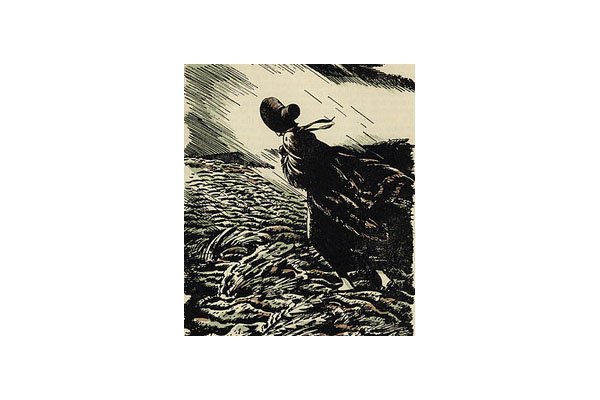
I have an old friend from the 1970s who is now in federal prison after being convicted on federal tax fraud charges. It was a messy case, with accusations of bilking investors, money laundering, perjury, and obstruction of justice. A former chairman of the North Carolina Republican party and former aide to the late Sen. Jesse Helms also was swept up in the case. How did my friend get there? He came from a very rich family — his family owned a Southern textile company — and he never lacked for anything.
When I knew him he was in his late teens. He was reading Tolkien and wearing funny hats. But after Tolkien, he read a lot of Ayn Rand. It changed him forever.
His father was an old-fashioned textile magnate who believed that his company had a duty to the community. His son — let’s call him Powell — acknowledged no such duty. Powell, aided by the family fortune, I assume, set up a textile business in Haiti, then the poorest country in the Western hemisphere with annual per capita income of $360. Powell was lionized in a 1987 article in the Washington Post, which saw in him some kind of heroism for doing business in Haiti. “If unions come, I go,” he is quoted as saying.
In 2002, he wrote an article calling the Bahamas “a Libertarian paradise.” The business that was caught up in federal fraud charges was operating out of the Bahamas. While in federal prison, he wrote a manifesto about the corruptness of the American justice system. He believes that he was set up and that he is a victim of the government.
I’d give credit for the following quote if I was sure who wrote it. It was a blogger, I believe, who goes by the name Kung Fu Monkey:
There are two novels that can change a bookish fourteen-year-old’s life: The Lord of the Rings and Atlas Shrugged. One is a childish fantasy that often engenders a lifelong obsession with its unbelievable heroes, leading to an emotionally stunted, socially crippled adulthood, unable to deal with the real world. The other, of course, involves orcs.
There you have it. Kung Fu Monkey also shows much insight in contrasting Tolkien with Rand, because their fiction has had pretty much the opposite effect on culture.
And now along comes a study from the University of Buffalo which found that reading fiction increases empathy. Young people who read Harry Potter books identify as wizards. Those who read vampire books identify as vampires. But here’s the gist of it:
The subject matter of fiction is constantly about why she did this, or if that’s the case what should he do now, and so on. With fiction we enter into a world in which this way of thinking predominates. We can think about it in terms of the psychological concept of expertise. If I read fiction, this kind of social thinking is what I get better at. If I read genetics or astronomy, I get more expert at genetics or astronomy. In fiction, also, we are able to understand characters’ actions from their interior point of view, by entering into their situations and minds, rather than the more exterior view of them that we usually have. And it turns out that psychologically there is a big difference between these two points of view. [Keith Oatley]
Psychological expertise. There you have it. But I think you have to read widely — many, many good authors — to develop psychological expertise.
Those whose view of reality is proudly empirical do not recognize such a thing as psychological expertise, because its insights are not falsifiable. That is almost certainly true. But the fact that something is not falsifiable does not prove that it is wrong. To empiricists, English majors are just babbling when they sit around and analyze stories and characters. But there is a method to it. Harold Bloom at Yale, for example, has a very well developed literary method. Camille Paglia was one of Bloom’s students, and it was this kind of method that she used in her brilliant book Sexual Personae. Empiricists despise that book. English majors and other lovers of fiction find it rich with cultural insight.
I don’t buy the proposition, by the way, that reading fiction increases empathy. Some fiction diminishes empathy and gives people permission to exercise their predatory instincts. There are good stories, and there are bad stories, which affect us for good or for ill.

















